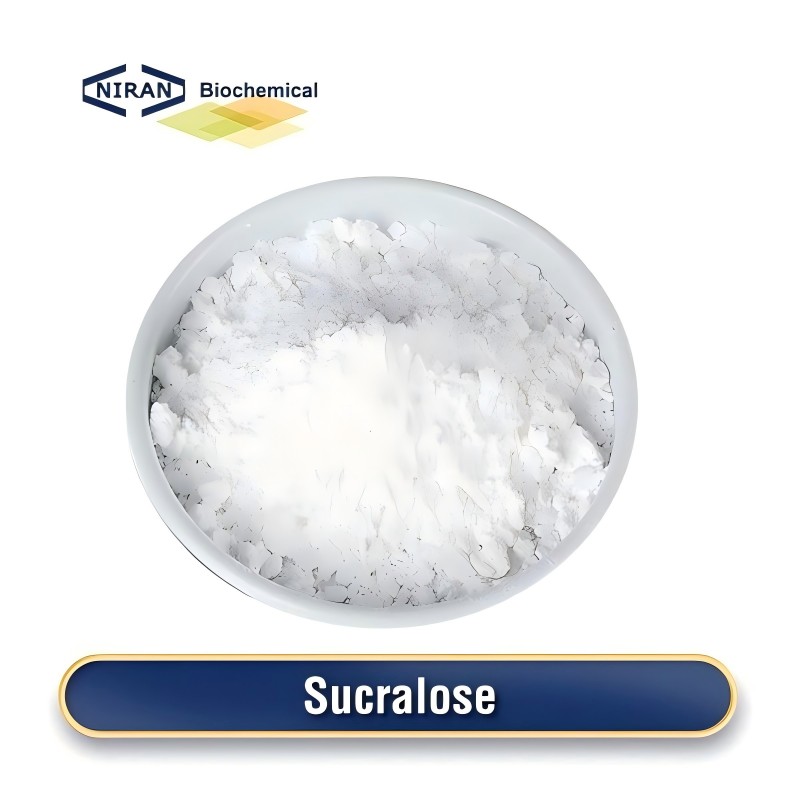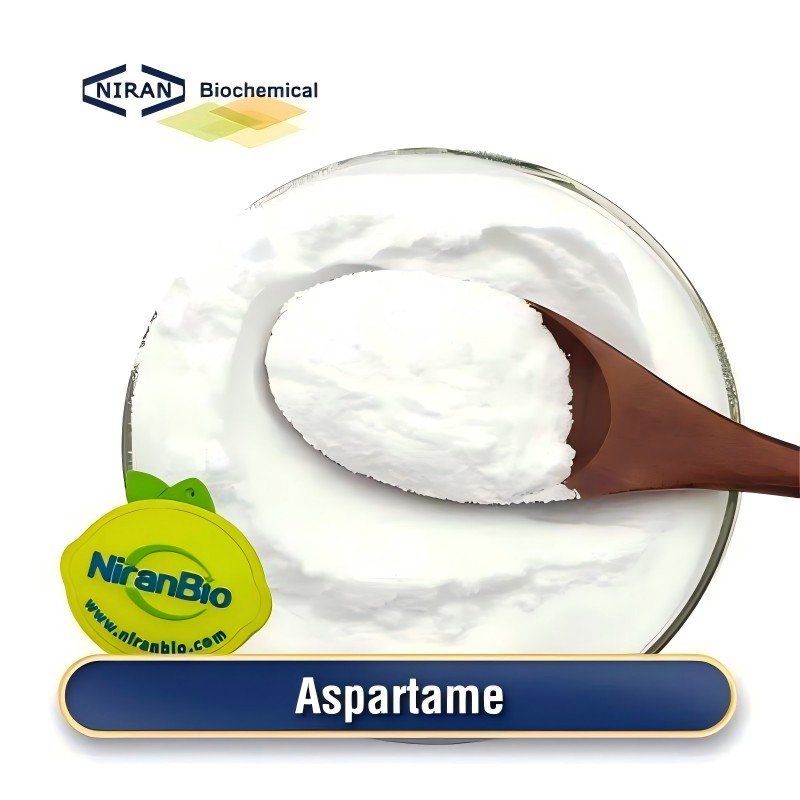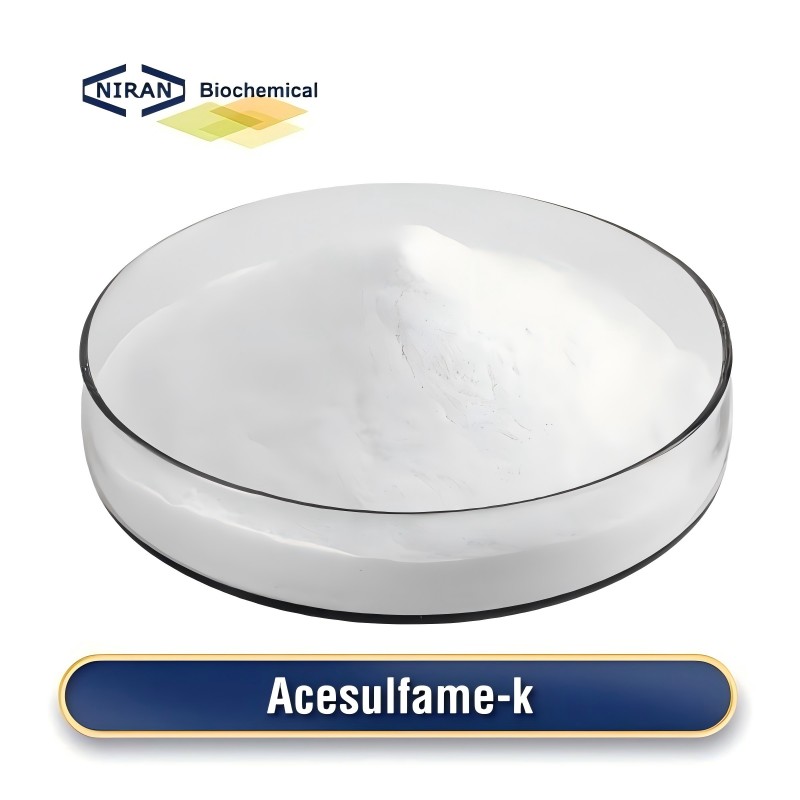The use of artificial sweeteners has grown in popularity as more consumers search for sugar-cutting options that don’t compromise sweetness. Among the most commonly used sweeteners are Sucralose, Aspartame, and Acesulfame Potassium. Each of these sweeteners has its distinct properties.
We’ll contrast these three sweeteners in this post, go over their benefits and drawbacks, and offer advice on which one is best for you.
Three Sweeteners Comparison Table
| Feature | Sucralose | Aspartame | Acesulfame Potassium |
| Chemical Structure | Chlorinated sucrose derivative | Dipeptide (aspartic acid + phenylalanine) | Potassium salt of an acylsulfamate |
| Sweetness Level | 600 times sweeter than sugar | 200 times sweeter than sugar | 200 times sweeter than sugar |
| Calories | Zero calories | 4 calories per gram (but negligible in typical use) | Zero calories |
| Heat Stability | Suitable for cooking; heat stable | Degrades at high temperatures; not heat stable | Heat stable; suitable for cooking |
| Taste Profile | Clean, sugar-like taste | Slightly bitter aftertaste in high concentrations | Slightly bitter aftertaste |
| Common Uses | Baked goods, beverages, sauces | Soft drinks, low-calorie foods | Beverages, often blended with other sweeteners |
| Health Concerns | Generally recognized as safe (GRAS), but may impact gut microbiome | Safe for general population, unsuitable for phenylketonuria (PKU) patients | Generally recognized as safe (GRAS) but concerns about long-term use |
Sucralose

Sucralose is a chlorinated derivative of sucrose, or table sugar, which is made by adding chlorine atoms to the three hydrogen-oxygen groups on the sucrose molecule. This change makes it much sweeter than sugar—around 600 times sweeter—while also eliminating its calories.
Sucralose is widely used in processed foods and beverages, particularly in low-calorie and sugar-free products. It is praised for its heat stability, making it suitable for cooking and baking, and its clean, sugar-like taste.
|
|
Aspartame

Aspartame, a synthetic sweetener derived from aspartic acid and phenylalanine, has a sweetness content of approximately 200 times that of sugar. Although it contains 4 calories per gram, its caloric contribution is negligible due to the small amounts used.
Commonly found in soft drinks and sugar-free products, Aspartame is not heat stable, limiting its use in baking. It is also unsuitable for people with phenylketonuria (PKU), a genetic disorder affecting the ability to process phenylalanine.
|
|
Acesulfame Potassium

Acesulfame potassium, also marketed as Ace-K, is another well-liked artificial sweetener that has a sweetness content of about 200 times that of sugar. Because it has a somewhat bitter aftertaste on its own, people often blend it with other sweets to counterbalance the flavor.
Acesulfame Potassium is calorie-free and heat-stable, making it a versatile ingredient in many sugar-free and low-calorie products. It is frequently present in baked goods, energy drinks, and beverages.
|
|
Factors to Consider When Choosing a Sweetener
When selecting between Sucralose, Aspartame, and Acesulfame Potassium, consider the following factors:
- Caloric Intake: If you’re looking to reduce calories, Sucralose and Acesulfame Potassium are calorie-free, while Aspartame contains a minimal number of calories that are negligible in most uses.
Sweetness Level: Sucralose is significantly sweeter than Aspartame and Acesulfame Potassium, so it requires less quantity to achieve the desired sweetness. - Heat Stability: If you need a sweetener for baking or cooking, Sucralose and Acesulfame Potassium are both heat stable, making them suitable for high-temperature applications. On the other hand, aspartame is not heat stable and can become less sweet under high temperatures.
- Taste: While Sucralose offers a cleaner, sugar-like taste, Aspartame, and Acesulfame Potassium can have a slightly bitter aftertaste, especially at higher concentrations.
- Health Concerns: Aspartame’s phenylalanine content makes it inadvisable for people with phenylketonuria (PKU). Sucralose has been associated with potential gut health concerns, while Acesulfame Potassium is generally regarded as safe but is often combined with other sweeteners.
- Usage: Sucralose is extensively utilized in many different products, such as baked goods and beverages. Aspartame is most commonly found in diet sodas and sugar-free gum, while Acesulfame Potassium is often used in energy drinks and beverages in combination with other sweeteners.
- Natural vs. Artificial: If you are concerned about consuming artificial sweeteners, none of these options are considered natural. However, they are all approved by regulatory authorities like the FDA and are widely used in food and beverage products.
Conclusion
Each sweetener has its strengths, depending on your dietary needs. Sucralose is ideal for those looking for a versatile, heat-stable sweetener with a sugar-like taste, making it perfect for baking and beverages. Aspartame works well in cold applications, like diet sodas, but is unsuitable for those with PKU. Acesulfame Potassium offers a zero-calorie option that pairs well with other sweeteners but may leave a slight aftertaste.
Whichever artificial sweetener you decide to use, it’s critical to be educated about its potential health risks. Consulting with a professional sweetener supplier can help ensure the sweetener you choose aligns with your dietary and health goals.
